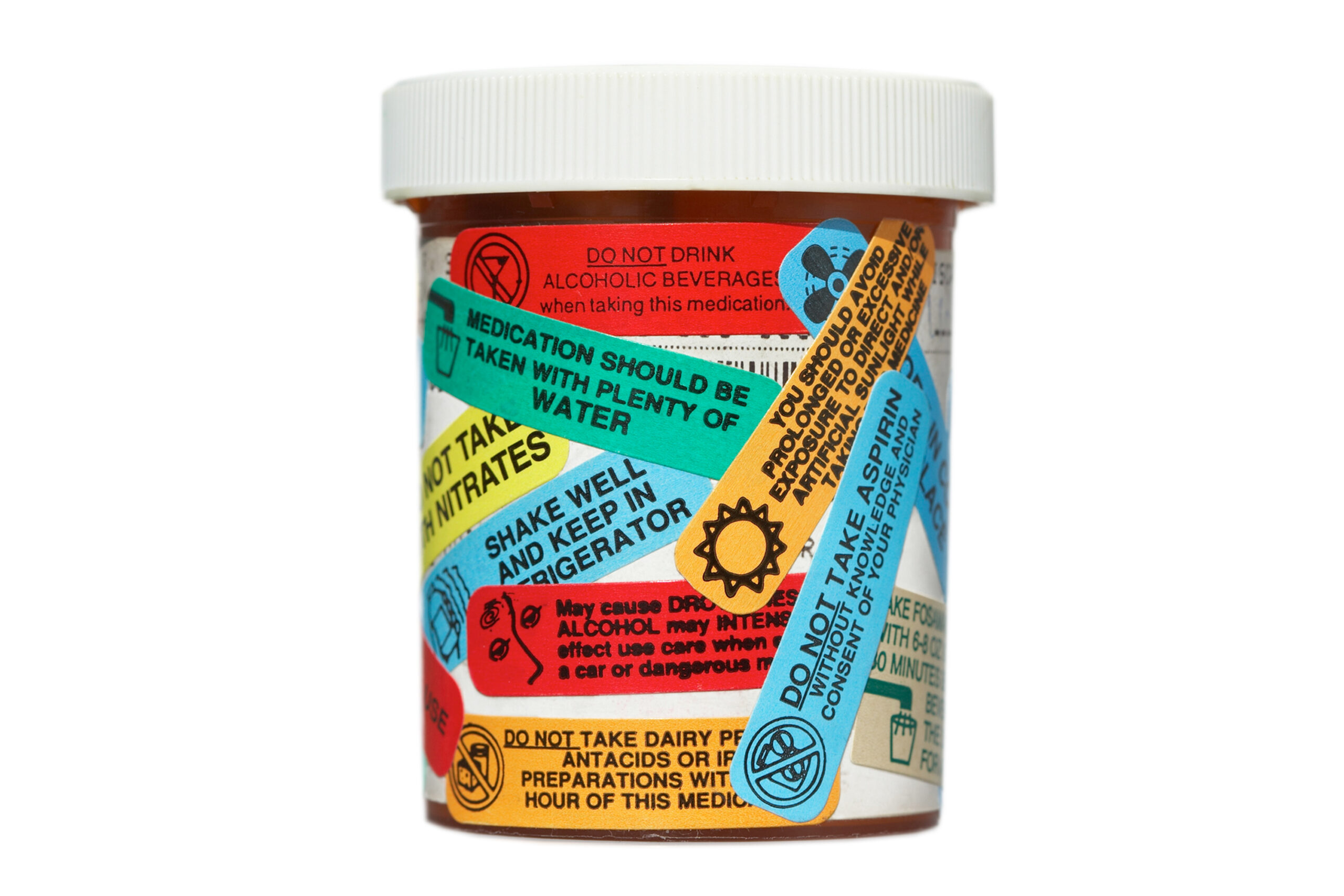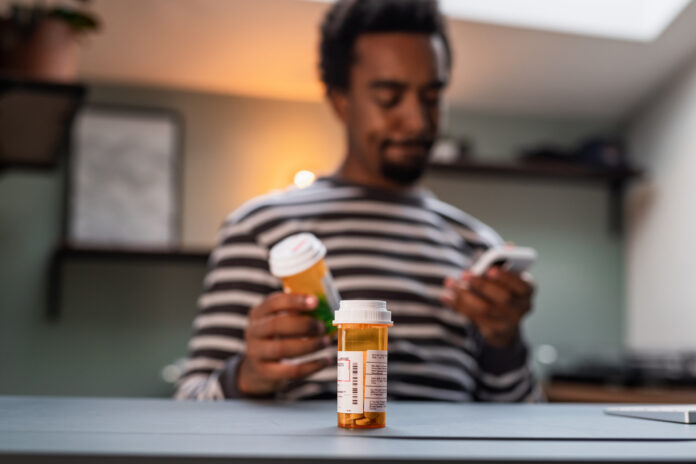It’s easy to take modern medications for granted. The ever-expanding armory of drugs makes it possible for millions of people to successfully treat their diabetes, heart disease, hypertension, and many other diseases. Over-the counter (OTC) and prescription medications offer relief from allergies, aches and pains, sleeplessness, gastrointestinal problems, and other ailments that impair quality of life. But these benefits come with a caveat: Used inappropriately or incorrectly, drugs may not help as much as possible and can even cause harm. Moreover, though drugs are tested extensively, medication mishaps can cause known adverse effects as well as unanticipated problems.
Adverse drug reactions result in more than a million visits to U.S. hospital emergency rooms each year, according to the CDC. Whenever you start a new medication, you should be aware that side effects may occur, and you should know what to do if you think you’re having one or more of them. This is especially true for older adults, who are at greater risk of experiencing drug side effects.
Some unexpected consequences of medications may be bizarre as well as dangerous. For instance, a relatively small number of people taking the insomnia drug zolpidem (Ambien) experience strange nocturnal behavior. Some users arise during the night and, while unaware of doing so, walk or eat uncontrollably. Incredibly, some even drive their cars.
Understanding side effects
A side effect is simply an unwanted effect of a medication; all drugs have potential side effects. You’ve probably squinted at the list of possible side effects on the package insert of your medications. These may include a panoply of problems, such as blurred vision, drowsiness, dizziness, dry mouth, heart palpitations, erectile dysfunction, memory impairment, or nervousness. Fortunately, most of these side effects occur in only a very small percentage of users. And if you know how to interpret these lists of side effects, they may be a useful resource instead of a source of anxiety.
You should suspect a side effect any time you have symptoms not normally associated with your illness or medical condition. Side effects may occur after you start a new medication, after you switch from one brand or formulation to another, or after your doctor increases the dosage. A new drug may interact with one of your other prescription or OTC medications or even a dietary supplement you’re taking. Though unlikely, you may also suddenly experience a side effect or unusual symptom from a drug you previously had been taking with no ill effects.
Medication Mishaps: What’s going on?
Adverse drug reactions may be surprising, but they often happen for a reason. Finding out the cause can help you and your doctor determine how to solve the problem. Common types of side effects include:
Dose-related side effects:
One common type of side effect is the result of too much of a good thing. For instance, drugs for high blood pressure may cause dizziness or light-headedness if they lower blood pressure too much. This can happen if the prescribed dosage is too high, if your body is unusually sensitive to the drug, or if the blood-pressure drug interacts with another medication that amplifies its effect.
Gastrointestinal side effects:
Problems such as nausea, loss of appetite, constipation, or diarrhea are common side effects. One reason is that drugs taken orally may irritate the lining of the stomach or intestines.
Allergic reactions:
Immune-system responses triggered by a medication can be widespread and occasionally even dangerous. Symptoms of an allergic reaction to drugs vary but commonly include skin rashes, hives, and itching. Less common but potentially deadly is a severe allergic reaction called anaphylaxis. Telltale signs of anaphylaxis include difficulty breathing, rapid pulse, and a sudden drop in blood pressure. Anaphylaxis demands emergency medical attention.
Drug-drug interactions:
Medications sometimes interact in the body, either amplifying or weakening each other’s effects, which is why you need to keep your doctor and pharmacist fully informed about every medication or substance you take, including OTC drugs and dietary supplements. Important drug-drug interactions are commonly (but by no means always) identified before most drugs reach the market.
Drug-food interactions:
Some foods and drinks don’t mix well with certain medications. For example, grapefruit contains a substance that affects the activity of an enzyme that processes certain medications in the intestines and liver. Eating grapefruit or drinking grapefruit juice could lead to a dangerous increase in the blood level of these drugs, notably some cholesterol-lowering statins.
Alcohol mixes badly with many medications. Among the more dangerous alcohol-drug interactions are those that cause excessive drowsiness, difficulty breathing, or liver damage (when consumed with acetaminophen, for instance). If you are prescribed a new drug, ask your doctor or pharmacist if it’s safe to drink alcohol.
Systemic side effects:
While some drugs act precisely to target the cause of a disorder, most don’t. Most drugs act throughout the body, or systemically. These drugs affect tissues or systems not involved in the problem being treated. For example, nonsteroidal anti-inflammatory drugs (NSAIDs) like aspirin, naproxen (such as Aleve), and ibuprofen (Advil, Motrin) reduce pain but can cause an upset stomach and, less commonly, gastrointestinal bleeding.
Drugs that act systemically are more likely to cause side effects than drugs that act locally. Locally delivered drugs include topical preparations applied to the skin, eyes, ears, or mucous membranes; some injections; and inhalers that deliver drugs to the lungs. All these local drugs have some systemic absorption, but it’s usually small and inconsequential.

Drugs and older adults
For people over 65, drug safety takes on special importance. Older adults are more likely to experience side effects from drugs than young people are, partly because of physiological changes associated with aging.
Older people are more likely to have more than one chronic medical disorder that are treated with prescription medications. 85% of adults aged 60 or older reportedly used prescription drugs in the past 30 days. Also, it’s common for older people to be on multiple medications—a practice referred to as polypharmacy. Almost 80% of older adults regularly take at least 2 prescription drugs, and 36% regularly take at least 5 different prescription drugs.
Polypharmacy makes drug interactions more likely. It also increases the risk that people will make errors when taking drugs. For older people, it’s especially important to take the minimum effective dose of all drugs. Younger people have a greater margin of safety for larger doses of prescription drugs because their livers and kidneys are in prime condition to remove medication from the blood. In older adults, however, reduced liver and kidney function can impair the ability to remove unused or excess drugs from the blood. The medication “left over” from one day to the next can build up. Eventually, the drug’s blood concentration may become high enough to cause side effects.
Other changes with aging may make medications less effective. For example, older bodies have more fat relative to muscle, so when an older person takes a fat-soluble drug, a greater percentage goes into the fat, resulting in a lower-than-expected concentration in the rest of the body.
Changes in digestion with age can also affect drug metabolism. For example, at older ages, the stomach produces less acid. This means that when an older person takes a drug that dissolves in acid, the drug takes longer to break down and be absorbed than it would in a younger person.
In older adults, blood flow through the body may slow because of cardiovascular disease. Impaired blood flow through the brain makes people more vulnerable to drug side effects like dizziness, fainting, loss of coordination, and confusion. This is a serious risk for frail or very old people, for whom falling can be fatal.
Older people should be cautious with alcohol (which is a drug itself) since they don’t metabolize it as well as younger people do, making it more likely that it will interact with their medication. Some shouldn’t drink at all because of their medications.
The health-care establishment has made significant efforts on a national level to address the problems of polypharmacy and drug errors. But your best defense is still knowing as much as you can about the drugs you take. The next time you have a doctor appointment, consider bringing along all your drugs—prescription and over-the-counter as well as dietary supplements—for evaluation.
In 2023 The American Geriatrics Society (AGS) released its latest update of its Beers Criteria for Potentially Inappropriate Medication Use in Older Adults (informally known as the Beers Criteria), which was created in 1991 by a geriatrician, Mark Beers. The AGS Beers Criteria was developed to help reduce the use of medications that can result in more risks than benefits in older adults. It is updated every three years.
The 2023 guide includes a list of more than three dozen individual medications or medication classes to avoid for most older people, 40 plus medications or medication classes to use with caution or avoid when someone lives with certain diseases or conditions. It also lists medication combinations that may lead to harmful drug-drug interactions, and medications that should be avoided or dosed differently for older people with poor kidney function.
Just because a drug is listed in the Beers Criteria doesn’t mean you shouldn’t be taking it if you’re over 65, however. Drugs are included in the criteria because they pose increased risks—but they aren’t necessarily unsafe for all older adults. You may not experience side effects or, even if you do, that drug may be the best option available for treating your problem—a decision that you and your doctor should make together. If you are over 65, ask your doctor if any drugs you take are discussed by the Beers Criteria. If they are, ask about the potential side effects and whether safer or more effective alternatives are available.
You can learn more about the Beers Criteria at www.healthinaging.org, a website from the AGS. It provides access to information about how medications work differently In older adults, medications that older adults should avoid or use with caution, alternative remedies that can include herbal medicines, medical marijuana, vitamins, supplements, and folk remedies, and what older adults can do to manage medications which includes this bottom line advice: Don’t stop taking a medication without first checking with your healthcare provider.




